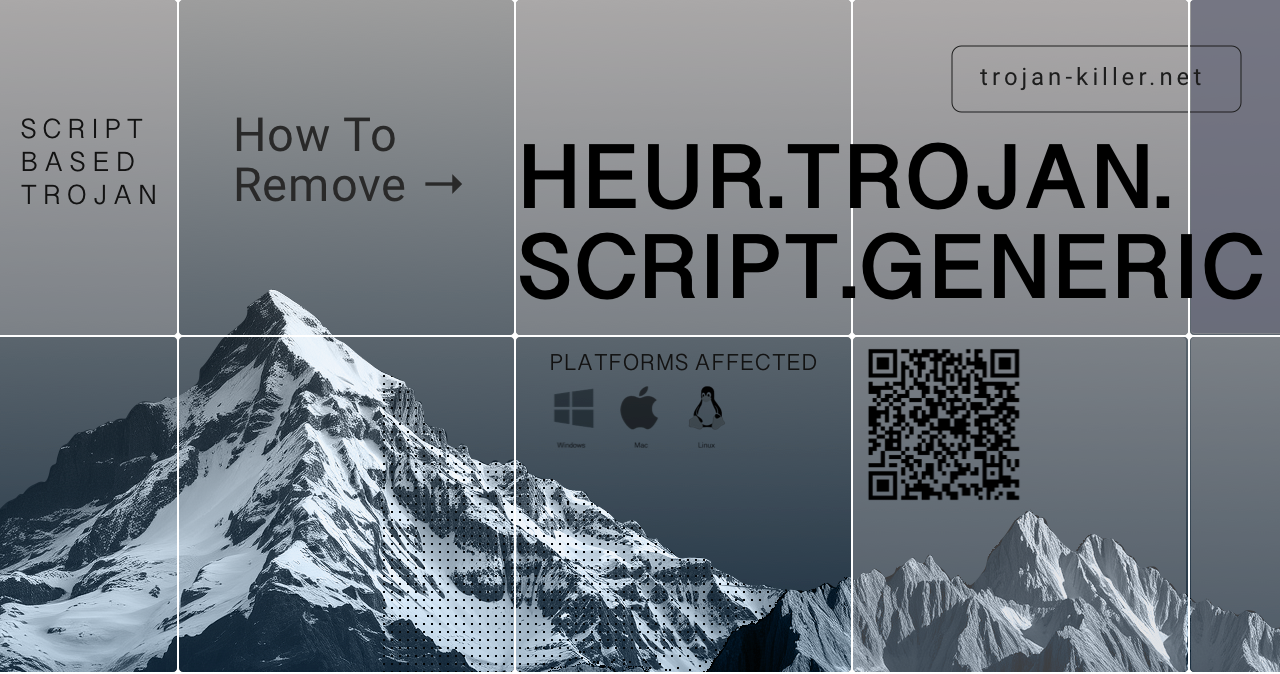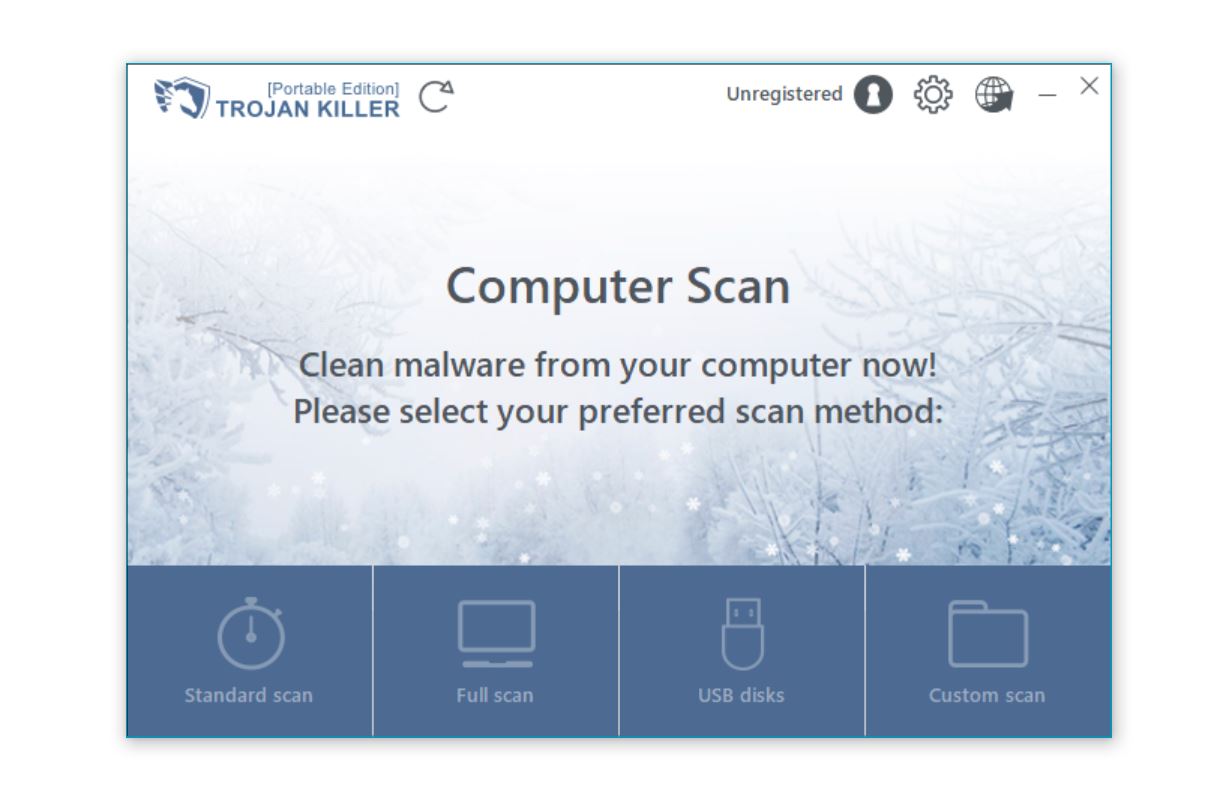Physical Address
Lesya Kurbasa 7B
03194 Kyiv, Kyivska obl, Ukraine
Physical Address
Lesya Kurbasa 7B
03194 Kyiv, Kyivska obl, Ukraine

If you’re reading this, you’ve probably just encountered that alarming “HEUR:Trojan.Script.Generic” detection in your antivirus. Let’s be honest – these cryptic security alerts can be confusing even for tech-savvy users. Is it dangerous? Can it be ignored? Do you need to take action? I’ve spent years researching these exact questions, and today I’ll break down exactly what this detection means and what to do about it.
| Threat Name |
|
| Type | Script-Based Trojan, Heuristic Detection |
| Detection Method | Behavior and pattern-based heuristic analysis |
| Affected Files | JavaScript (.js), VBScript (.vbs), PowerShell (.ps1), HTML with embedded scripts |
| Platforms Affected | Windows 7-11, macOS, Linux (browser-based variants) |
| Risk Level | Medium to High (depends on specific variant) |
| Data Risk | Potential credential theft, data exfiltration, remote access |
When your antivirus pops up with a “HEUR:Trojan.Script.Generic” alert, it’s not identifying a specific virus with a name and ID card. Instead, it’s saying, “I’ve found a script that’s behaving suspiciously, and it matches patterns we’ve seen in malicious code before.”
Let’s break this name down into plain English:
This detection is especially common in browsers. As one Kaspersky user discovered, these detections often appear in your browser cache – showing that while browsing, you encountered a suspicious script that your antivirus caught before it could do any harm.
Source: Analysis of script-based malware trends from Microsoft Security Intelligence and GridinSoft Threat Labs, 2020-2025. Shows relative growth with JavaScript becoming the dominant scripting language for malware.
This is where things get interesting. Sometimes HEUR:Trojan.Script.Generic is a genuine threat, and sometimes it’s a false alarm. According to multiple Reddit threads, this detection frequently appears when:
One Reddit user reported that Kaspersky flagged HEUR:Trojan.Script.Generic “when I open 9anime.” This makes sense – streaming sites often use complex scripts and may serve ads from networks with questionable security practices.
So how can you tell if it’s serious? Here’s my rule of thumb:
A Kaspersky forum moderator confirmed this distinction, noting that when these detections appear in your browser cache, it means “you visited some sites with malware on them” – but if the files were deleted automatically, there’s “no worries.”
Based on user reports, HEUR:Trojan.Script.Generic typically shows up in these locations:
The good news? When your antivirus detects the threat in a browser cache, it usually means the script was caught before it could do any harm. The detection doesn’t mean your system is infected – it means your security software is doing its job.
If the HEUR:Trojan.Script.Generic detection is part of an actual infection rather than just a blocked website script, you’ll likely notice these symptoms:
One Reddit user described their experience: “After the detection appeared, my Chrome started opening random tabs with ads every few minutes.” This is a clear sign that the script wasn’t just harmlessly sitting in a cache but had actually executed and was affecting the system.
Let’s talk about what script-based threats like HEUR:Trojan.Script.Generic can actually do:
These risks explain why security software treats these detections seriously, even though many turn out to be false positives.
If you’ve confirmed this isn’t just a browser cache detection but an actual active threat, here’s how to remove it:
Since many HEUR:Trojan.Script.Generic detections occur in browser caches, this should be your first step:
If clearing browser data doesn’t resolve the issue, it’s time for a more thorough approach:

A Kaspersky forum moderator specifically recommended this step, noting: “Check the add-ons installed in Your Chrome, if there is any suspicious one installed.”
chrome://extensions/ in your address baredge://extensions/ in your address barIf you’re still experiencing issues, a browser reset can help:
Understanding how this detection appears in the wild can help you better evaluate your own situation:
A Kaspersky user reported this exact detection in their Chrome cache:
Event: Object deleted Application name: chrome.exe Component: File Anti-Virus Result description: Deleted Type: Trojan Name: HEUR:Trojan.Script.Generic Precision: Heuristic Analysis Threat level: High Object name: f_000058 Object path: C:\Users\batre\AppData\Local\Google\Chrome\User Data\Default\Cache\Cache_Data
The Kaspersky moderator confirmed this was malware caught in the browser cache, likely from visiting a compromised website. Since the file was deleted automatically, no further action was required.
A Reddit user reported: “Kaspersky detects HEUR:Trojan.Script.Generic when I browse [anime site]. Is this a false positive or should I be concerned?”
This is a common scenario. Streaming sites often use aggressive advertising networks that may serve malicious scripts. In most cases, the detection happens in real-time as the script attempts to run, and your security software blocks it before it can do any harm. As long as your antivirus handles it automatically, this usually requires no further action.
Another Reddit user mentioned: “HEUR:Trojan.Script.Generic Kapersky Download denied when trying to download a game mod.”
In this case, the file itself contained suspicious code. When your antivirus blocks a download with this detection, it’s generally wise to find an alternative source for the software you’re trying to download, as there’s a good chance the file was genuinely malicious.
If you’re tired of seeing these alerts, here are practical steps to reduce their frequency:
Based on real user experiences, here’s a simple guide to whether your HEUR:Trojan.Script.Generic detection requires action:
If you’re interested in what makes a script get flagged as HEUR:Trojan.Script.Generic, these are the common triggers:
Even legitimate scripts sometimes use these techniques for valid reasons (like code compression), which explains why false positives occur.
Not necessarily. When found in a browser cache (as most are), it usually means your security software blocked a malicious script before it could execute. If the detection report shows the file was deleted, you’re likely already protected. Only be concerned if you notice unusual computer behavior or if the detection appeared after running a downloaded file.
It depends. Based on Reddit reports, many users of anime streaming sites regularly encounter these detections. If your antivirus handles them automatically and you experience no other issues, it’s probably safe to continue browsing. However, consider using an ad blocker for additional protection, as these detections suggest the sites you’re visiting have security issues.
Kaspersky is particularly sensitive to script-based threats. Different security products use different detection methods and thresholds. Kaspersky’s heuristic engine tends to flag suspicious scripts more aggressively than some other products, which is why users often report these detections specifically with Kaspersky.
If the script is blocked before executing (as in most browser cache detections), no damage will occur. A script itself can’t physically harm your hardware, but if allowed to run, malicious scripts can steal information, download additional malware, or cause system instability.
If clearing your browser data doesn’t stop the detections, you might have:
In these cases, follow the more comprehensive removal methods described earlier in this guide.
HEUR:Trojan.Script.Generic is a catch-all detection for suspicious scripts that might be harmful. Most commonly, it appears when your browser encounters potentially malicious code while you’re browsing the web. In the majority of cases where the detection happens in your browser cache and is automatically resolved, you can simply clear your browser data and continue with your day.
However, if the detection involves downloaded files you’ve run, or if you notice unusual computer behavior, take it seriously and follow the removal steps outlined above. The difference between a minor inconvenience and a serious security incident often comes down to how quickly and thoroughly you respond.
Remember what the Kaspersky forum moderator told the concerned user: if the files were detected and deleted, there’s “no worries.” That advice applies to most of us – be aware, take basic precautions, but don’t panic over every detection.
Keeping your browser and security software updated, being cautious about what you download, and using good browsing habits will go a long way toward keeping these detections to a minimum and your data secure.